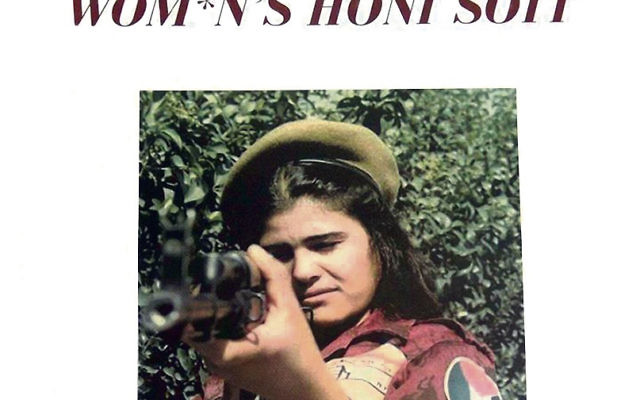Student politics has taken a foul turn
Student politics has undeniably taken a foul turn. University campuses are meant to encourage robust debate and academic discourse. Yet, elected representatives at the University of Sydney are utilising bullying, intimidation and scare tactics to silence opposition and disseminate a distorted view of the Israel–Palestine conflict.
THERE is a word, usually confined to the playground, that perfectly encapsulates a combination of intimidation through threat of violence and abuse of power.
It is an ugly word, far too often made diminutive in its effect. It is the only way to characterise the behaviour of the guest editors for the University of Sydney’s offensive Honi Soit student magazine, who chose to print a picture of Hamida Al-Taher, a known suicide bomber, in a militant pose on their cover. It is called bullying, and it has no place on our campuses.
Over a fortnight ago, the Wom*n’s Collective at the University of Sydney produced its annual autonomous edition of Honi with Al-Taher on its cover. Al-Taher, who was described by the editors as a “martyr”, carried out a suicide attack in southern Lebanon in 1985, indiscriminately killing more than 50 individuals.
The same edition included an article denigrating this year’s Eurovision winner, Netta Barzilai, and referred to Israel as “not even a real country”. This edition came only weeks after the April 16 Queer Collective issue of Honi, which displayed a graphic of a Molotov cocktail and direct references to BDS on the front cover.
We at the Australasian Union of Jewish Students (AUJS) acted decisively in condemning the covers. In this condemnation, we criticised both covers as “endorsing violence as a legitimate form of protest”, and urged the editors to affirm their commitment to non-violent paths to peace.
They have so far failed to do so. Instead, the Wom*n’s Collective simultaneously denied and attempted to justify Al-Taher’s lethal bombing operation.
That this is the public position of the Wom*n’s Collective at the university is disturbing and wholly inconsistent with the values of free academic inquiry and debate still codified in the university’s ethical guidelines.
The intention of these covers seemed unambiguous and unsubtle: that violence and terrorism are legitimate forms of protest, especially within the context of the Israel–Palestine conflict and towards those who openly support the existence and continued success of the State of Israel.
Despite repeated attempts by AUJS to engage in constructive dialogue about these Honi covers, the representatives of student activism at the university exploited their positions to intimidate their constituents.
This was a blatant attempt by student politicians to disseminate publications that sacrifice respectful dialogue to push an extremist and violent agenda, causing distress among Jewish and other students who support Israel.
Yet, despite AUJS’s concerns, the University’s Student Representative Council (SRC) continued shirking its responsibility as a representative body when, on June 6, instead of responding to its constituents’ concerns, it passed a motion against AUJS.
The motion, which passed 11 to 10, congratulated the Wom*n’s edition of Honi as “brave and highly defensible”, and condemned AUJS for criticising the covers by suggesting that progressive political speech was being censored.
By using this motion to condemn AUJS’s legitimate exercise of free speech and criticism, the SRC declared that its views are not subject to the same level of criticism as other student bodies.
The suggestion that mere criticism by AUJS is a suppression of their free speech sets a worrying precedent for any student group that has the temerity to publicly disagree with the extreme political agenda of the university’s Socialist Alternative and Grassroots, who moved and seconded this motion.
Student politics has undeniably taken a foul turn. University campuses are meant to encourage robust debate and academic discourse. Yet, elected representatives at the University of Sydney are utilising bullying, intimidation and scare tactics to silence opposition and disseminate a distorted view of the Israel–Palestine conflict.
AUJS is not in the business of wading into parochial battlegrounds to make political statements. AUJS is, however, in the business of standing up for not only Jews on campus, but for the safety and welfare of all students, something critically lost in the promotion and glorification of violence.
Make no mistake: the power wielded by such representatives is real. The toxic atmosphere they create for Jewish students is real. The outrage felt by students and community members, Jewish and non-Jewish alike across Australia, is real.
NOA BLOCH is AUJS national political affairs director, and BENJAMIN EZZES is president of AUJS at the University of Sydney.


comments